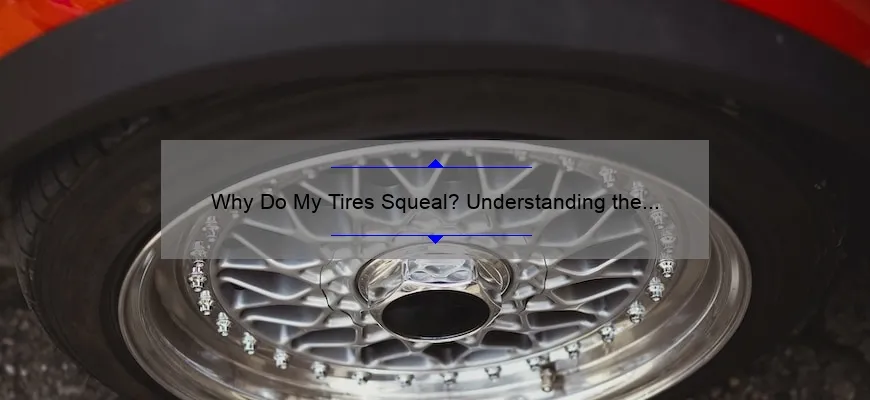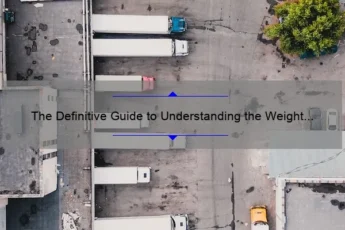Tire squeal during slow turns is commonly caused by loss of traction between the tire and the road surface. Factors such as worn-out tire treads, improper tire pressure, or a lack of grip on slippery surfaces can contribute to this issue. Additionally, aggressive driving or abrupt steering maneuvers can also result in tire squeal. Proper maintenance, tire rotation, and using tires suitable for specific road conditions can help minimize this noise.
- What causes that annoying squealing sound when I turn my car slowly?
- Is it normal for my tires to squeal when I make slow turns?
- Why do my tires squeal when I navigate corners at low speeds?
- How can I prevent my tires from squealing when I turn slowly?
- Are squealing tires a sign of a more significant issue with my vehicle?
- What factors contribute to tire squealing when making slow turns?
- Can improper tire maintenance lead to squealing while turning?
- How can I diagnose the cause of my tires squealing when I turn at low speeds?
- Are specific types of tires more prone to squealing during slow turns?
- What steps can I take to eliminate or reduce tire squealing when making slow maneuvers?
What causes that annoying squealing sound when I turn my car slowly?
The squealing sound when turning your car slowly can be caused by several factors. One common cause is a worn-out or loose belt in the engine. As the belt loses its grip, it can slip and create a high-pitched squealing noise. Another possible cause could be a worn-out power steering pump or low power steering fluid level. When the pump or fluid is insufficient, it can cause the components to grind against each other, resulting in the annoying squeal. Additionally, a worn-out or damaged wheel bearing can also create a squealing sound while turning. It is advisable to have your car inspected by a mechanic to accurately diagnose and address the issue.
Is it normal for my tires to squeal when I make slow turns?
No, it is not normal for tires to squeal when making slow turns. Tires squealing during slow turns could indicate an issue with the tires’ traction or a problem with the vehicle’s suspension or steering components. It is recommended to have the car inspected by a professional mechanic to determine the exact cause of the squealing noise and to ensure the safety of the vehicle.
Why do my tires squeal when I navigate corners at low speeds?
Tires can squeal when navigating corners at low speeds due to factors such as inadequate tire grip, underinflation, or poor tire quality. Lack of sufficient traction between the tires and the road surface can cause them to slip and produce a squealing noise. Additionally, worn-out tires or improperly aligned wheels can also contribute to the squealing sound. It is important to check tire pressure, tread depth, and alignment to ensure optimal performance and reduce squealing while cornering at low speeds.
How can I prevent my tires from squealing when I turn slowly?
There are several ways to prevent your tires from squealing when turning slowly:
1. Check tire pressure: Ensure that your tires are properly inflated according to the manufacturer’s recommendation. Underinflated or overinflated tires can cause excessive friction and squealing noise when turning.
2. Rotate your tires: Uneven wear on tires can lead to squealing. Regularly rotating your tires will ensure even wear and minimize noise.
3. Slow down: Reducing your speed while turning can help minimize the squealing noise. Avoid sudden or sharp turns as they can put additional stress on the tires and cause them to squeal.
4. Smoothly apply brakes: If you are braking while turning, ensure that you do so smoothly and gradually. Slamming on the brakes can cause the tires to lock up and result in squealing.
5. Maintain proper wheel alignment: Misaligned wheels can put unnecessary stress on the tires, causing them to squeal. Regular wheel alignments will help prevent this issue.
6. Replace worn-out tires: If your tires are old and worn, the tread may be too thin to provide optimal traction. Consider replacing your tires if they are worn out or if the tread depth falls below the recommended level.
7. Consider using high-quality tires: Opt for well-known and reputable tire brands. High-quality tires often have better tread compounds and designs that can reduce the likelihood of squealing.
If the squealing persists despite taking these preventive measures, it may be best to consult a professional mechanic to inspect your vehicle’s suspension, brakes, or other components that could be contributing to the noise.
Are squealing tires a sign of a more significant issue with my vehicle?
Squealing tires can indicate a few potential issues with your vehicle that need to be addressed. It could be a sign of worn-out brake pads, which should be replaced promptly to ensure proper braking performance. Additionally, it could suggest that the tires are over-inflated or under-inflated, leading to uneven wear and reduced traction. Moreover, if you notice the noise only while turning, it could indicate problems with the alignment or suspension components. Therefore, it is recommended to have a qualified mechanic inspect your vehicle to identify and resolve any potential underlying issues.
What factors contribute to tire squealing when making slow turns?
There are several factors that may contribute to tire squealing when making slow turns.
1) Tire condition: Worn or bald tires have reduced grip, leading to loss of traction and squealing sounds, especially during slow turns.
2) Road surface: Uneven or slippery road surfaces can cause tires to lose grip and produce squealing noises while turning.
3) Suspension system: If the suspension system is worn or damaged, it may not maintain proper weight distribution on the tires, leading to squealing sounds during turns.
4) Wheel alignment: Improper wheel alignment can cause uneven tire wear and reduced traction, resulting in tire squealing.
5) Driving technique: Aggressive driving, such as taking sharp turns at high speeds or sudden acceleration, can overload the tires and cause them to squeal.
6) Vehicle weight distribution: If the vehicle is heavily loaded, it may affect weight distribution on the tires, potentially causing squealing sounds during slow turns.
7) Tire pressure: Incorrect tire pressure can affect tire grip, leading to squealing when making slow turns.
It’s important to address these factors as prolonged tire squealing can indicate potential safety issues or excessive tire wear.
Can improper tire maintenance lead to squealing while turning?
Yes, improper tire maintenance can lead to squealing while turning. This can be caused by several factors such as worn out tires, under-inflated tires, misaligned wheels, or uneven tire wear. When the tires are not properly maintained, they may not have enough traction or contact with the road surface, causing them to slip and squeal during turns.
How can I diagnose the cause of my tires squealing when I turn at low speeds?
There are several steps you can take to diagnose the cause of your tires squealing when turning at low speeds:
1. Check tire pressure: Ensure that all the tires are properly inflated. Incorrect tire pressure can affect the traction and cause the tires to squeal.
2. Inspect the tires: Examine the tires for any signs of wear, such as uneven tread or bald spots. If the tires are worn out, they may need to be replaced.
3. Check the wheel alignment: Improper wheel alignment can cause the tires to squeal when turning. Take your vehicle to a professional mechanic to have the alignment checked and adjusted if necessary.
4. Assess the brake system: Faulty brake components, such as worn-out brake pads or rotors, can produce a squealing noise when turning. Have a mechanic inspect the brake system and replace any worn-out parts.
5. Examine the power steering system: A malfunctioning power steering system can cause the tires to squeal during low-speed turns. Have a mechanic inspect the power steering components and address any issues.
6. Inspect the suspension system: Worn-out or damaged suspension components, such as control arms or bushings, can cause the tires to squeal when turning. Have a mechanic inspect the suspension system and replace any faulty parts.
7. Seek professional help: If you are unable to determine the cause of the squealing tires on your own, it is advisable to take your vehicle to a qualified mechanic who can diagnose the issue accurately and provide necessary repairs.
Remember, identifying the specific cause of the squealing tires requires a thorough inspection of the vehicle’s various components.
Are specific types of tires more prone to squealing during slow turns?
Yes, specific types of tires can be more prone to squealing during slow turns. Generally, tires with harder rubber compounds and less tread tend to have less traction, causing them to squeal more easily during slow turns. Additionally, tires with a low tread-wear rating or worn-out treads may also contribute to increased squealing during slow turns.
What steps can I take to eliminate or reduce tire squealing when making slow maneuvers?
To eliminate or reduce tire squealing when making slow maneuvers, you can take the following steps:
1. Check tire pressure: Ensure that your tires are properly inflated according to the recommended pressure specified by the manufacturer. Underinflated tires can cause excessive friction and increase the likelihood of squealing.
2. Check tire wear: Inspect your tires for any signs of excessive or uneven wear. Worn-out tires with inadequate tread depth may be more prone to squealing. If needed, consider replacing them.
3. Drive slower: When making slow maneuvers, try to drive at a slower speed. Higher speeds can create more friction between the tires and road surface, increasing the chances of squealing.
4. Gradual acceleration and deceleration: Instead of making abrupt movements with the accelerator or brakes, try to apply them gradually and smoothly. This helps to minimize the tire’s tendency to squeal.
5. Proper weight distribution: Ensure that the weight in your vehicle is evenly distributed. Uneven weight distribution can cause excessive pressure on certain tires, leading to squealing during slow maneuvers. If necessary, redistribute the load in your vehicle.
6. Avoid aggressive steering: When making turns or changing directions, try to avoid aggressive or abrupt steering. Smooth and gentle movements help to reduce the strain on tires and prevent squealing.
7. Consider tire type: If your tires are consistently squealing during slow maneuvers, you could consider replacing them with tires that offer better grip or are designed for improved handling.
Remember, if the tire squealing persists despite taking these steps, it may be a sign of a more significant issue with your vehicle’s suspension or braking system. In such cases, it is advisable to consult a professional mechanic to diagnose and resolve the problem.
| Reason | Possible Explanation | Solution |
|---|---|---|
| Worn-out Tires | Tire treads have worn down, reducing traction | Replace tires with new ones |
| Low Tire Pressure | Underinflated tires can cause increased friction | Inflate tires to the recommended pressure |
| Faulty Wheel Alignment | Misaligned wheels cause uneven tire wear | Get a professional wheel alignment |
| Worn-out Brake Pads | Brake pads might be worn, causing them to squeal when turning | Replace worn brake pads |
| Loose or Worn-out Belts | Belts in the engine might be loose or worn, causing them to slip | Tighten or replace loose or worn belts |







